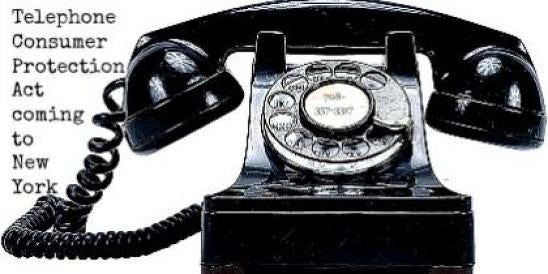A recent decision by the U.S. Court of Appeals for the Second Circuit may lead to a wave of class action litigation in New York under the Telephone Consumer Protection Act (“TCPA”). See Todd Bank v. Independence Energy Grp. LLC, No. 13-1746-cv (2d Cir. Dec. 3, 2013).
The TCPA is a federal statute that imposes stiff statutory penalties of $500 to $1,500 per violation regardless of any actual damage. See 47 U.S.C. § 227. The TCPA prohibits calls and text messages to cell phones without prior express consent. It also prohibits certain types of calls to residential lines and certain types of faxes. Because of its statutory penalties, it has become a favorite among the plaintiff’s class action bar in recent years, especially in California, Illinois, and Florida. Its statutory penalties, on a class action basis over a four-year period, are crushing—at least $500,000 for 1,000 violations, $5 million for 10,000 violations, $50 million for 100,000 violations, etc.
Until now, New York has received safe harbor from this storm under state Civil Practice Law and Rule 901(b). That rule prohibits class action claims for statutory damages in New York. Many courts in New York, including the Second Circuit in 2008, applied Rule 901(b) to bar TCPA class actions for statutory penalties in that state. See, e.g., Bonhime v. Avaya, Inc., 547 F.3d 497, 502 (2008) (“federal courts should apply C.P.L.R. 901 (b) to putative class actions brought for alleged TCPA violations”).
In Bank, however, the Second Circuit has now reversed itself. It did so based on the recent U.S. Supreme Court decision in Mims v. Arrow Fin. Servs., LLC, 132 S. Ct. 140 (2012), which held that the federal four year catch-all statute of limitations applies to TCPA claims, and not any state law statute of limitations. The confusion has been caused by Section 227(b)(3) of the TCPA, which permits TCPA claims to be brought in state court “if otherwise permitted by the laws or rules of the courts of a State.” Until Mims, many courts had interpreted this language to permit the application of some state law to TCPA claims.
The U.S. Supreme Court has now imposed a more narrow interpretation, which, according to the Second Circuit in Banks, has “uprooted much of our TCPA jurisprudence.” In Banks, the Second Circuit has applied the reasoning of Mims to hold that New York State Rule 901(b) no longer bars TCPA class actions for statutory penalties.
As a result, defendants can expect to see many more TCPA class actions filed in federal court in New York.
Manuel F. Gomez also contributed to this article




 i
i

